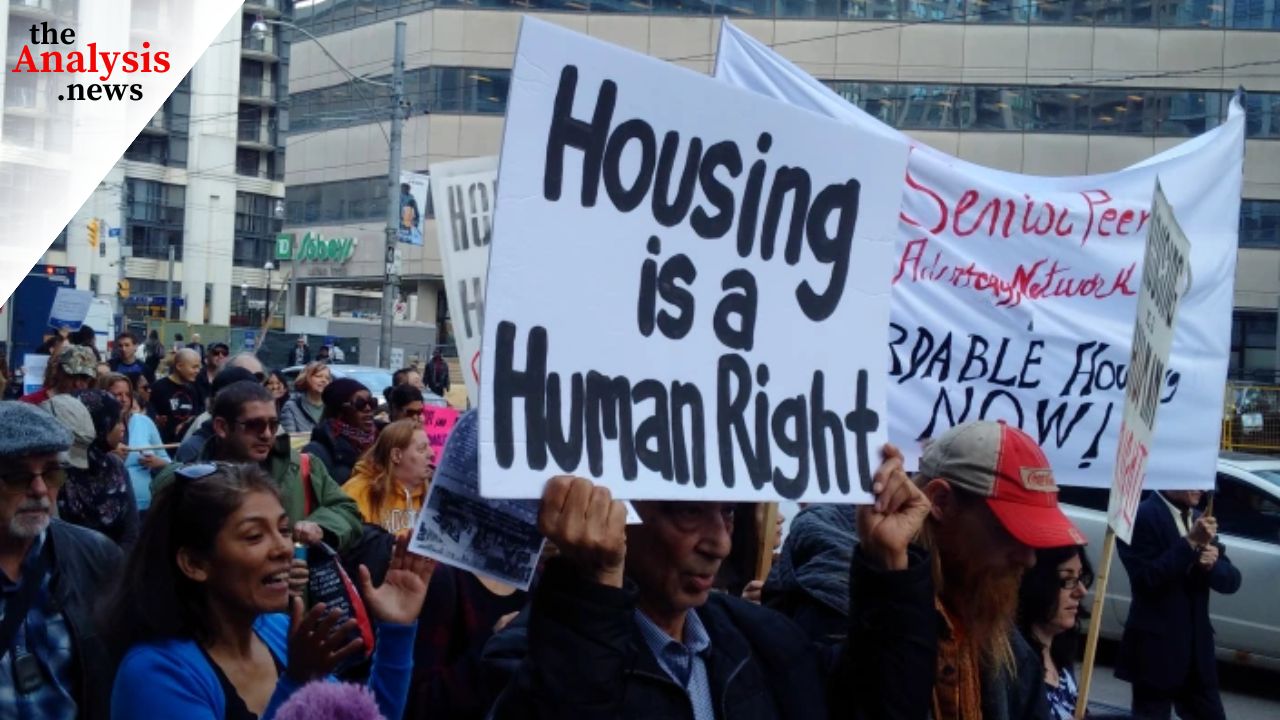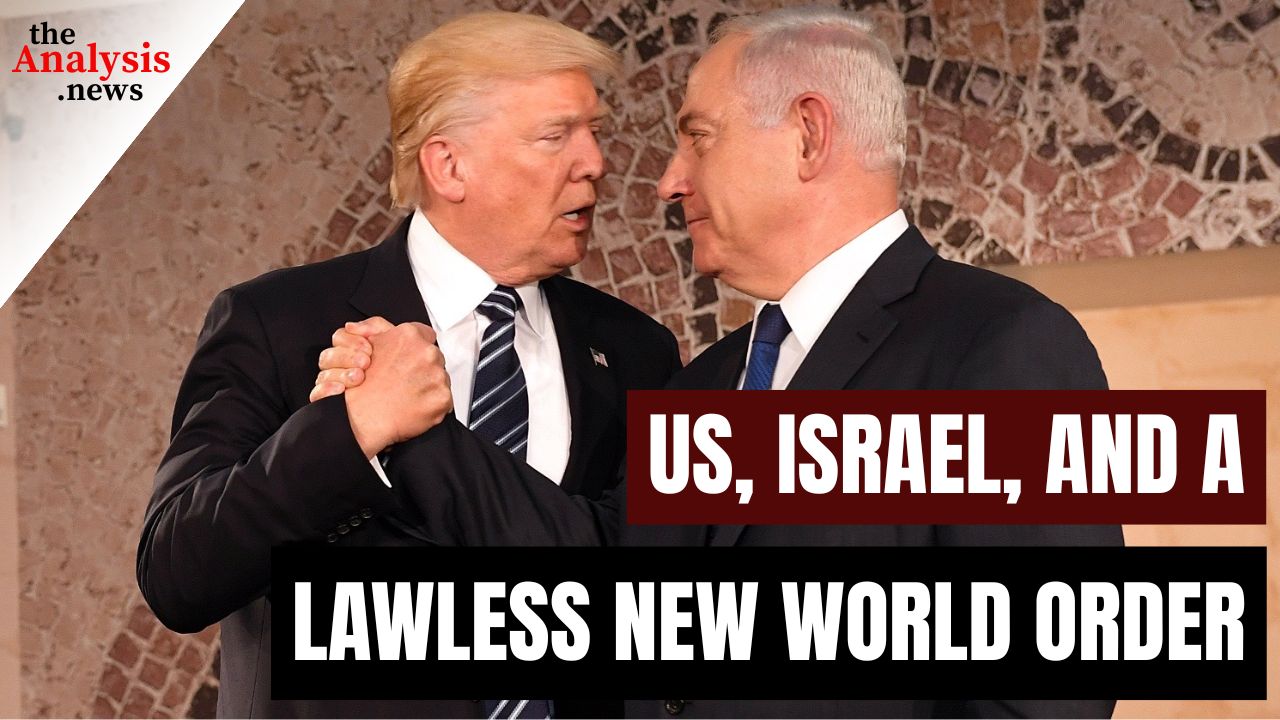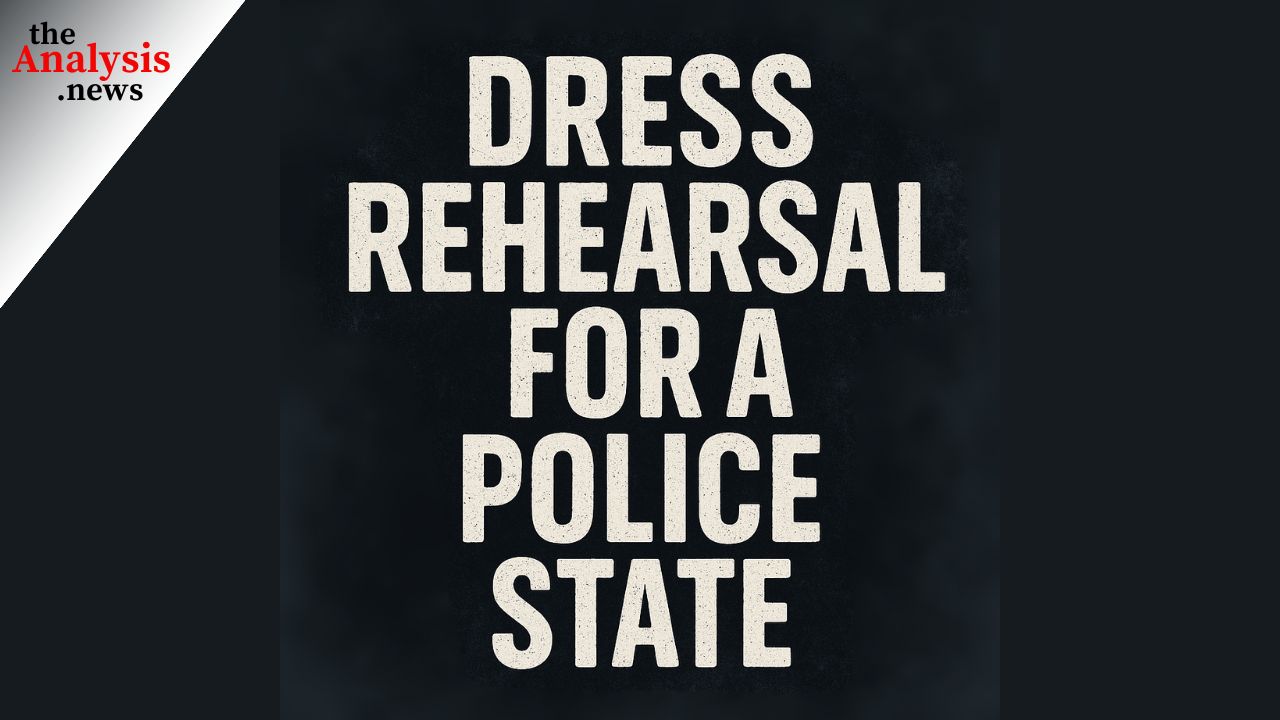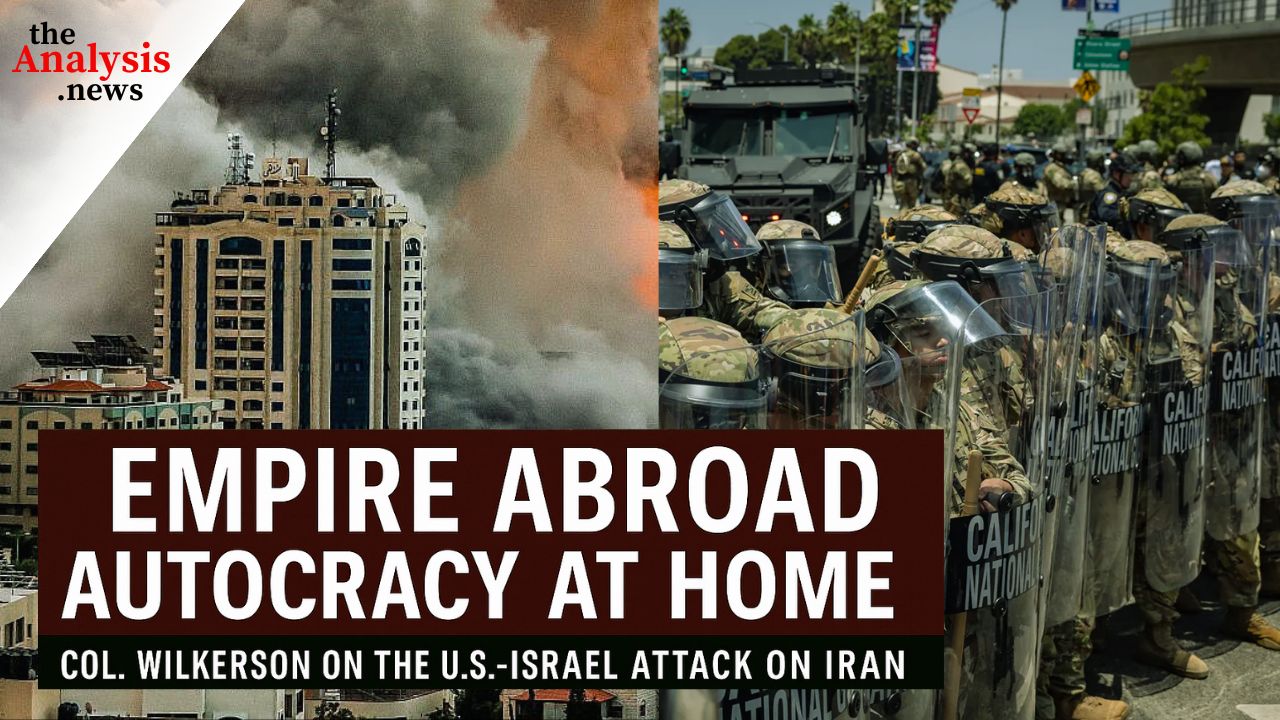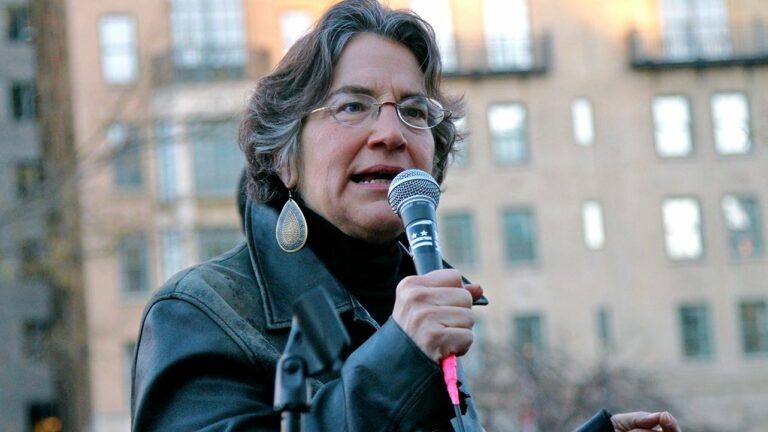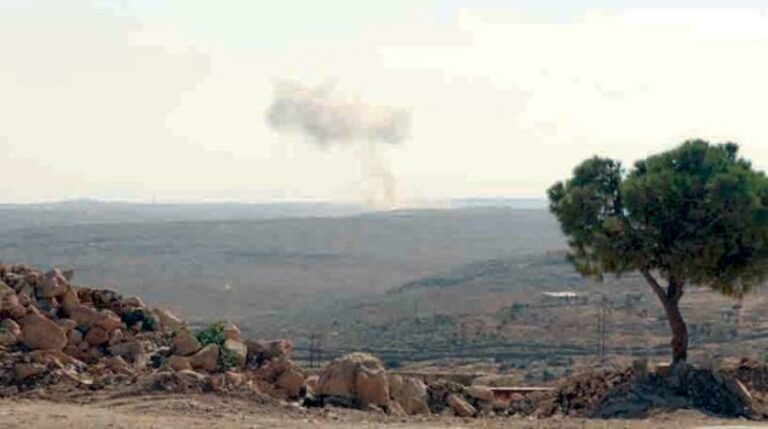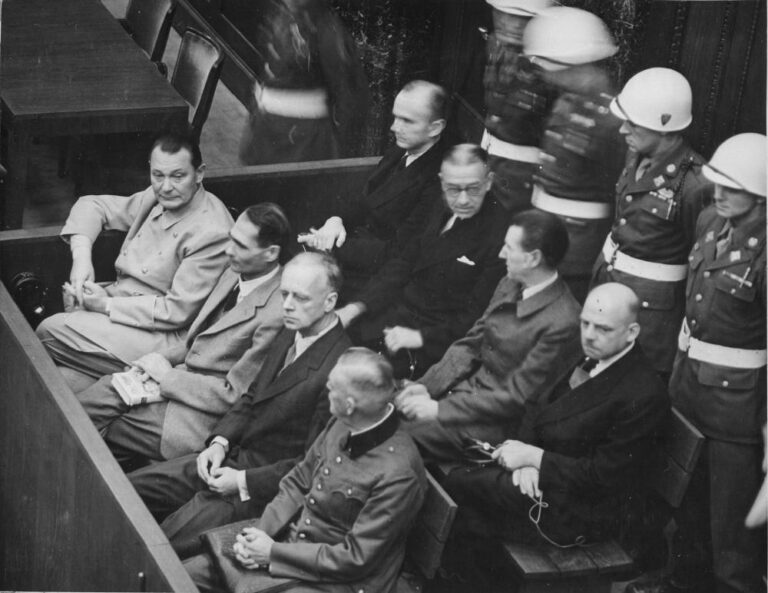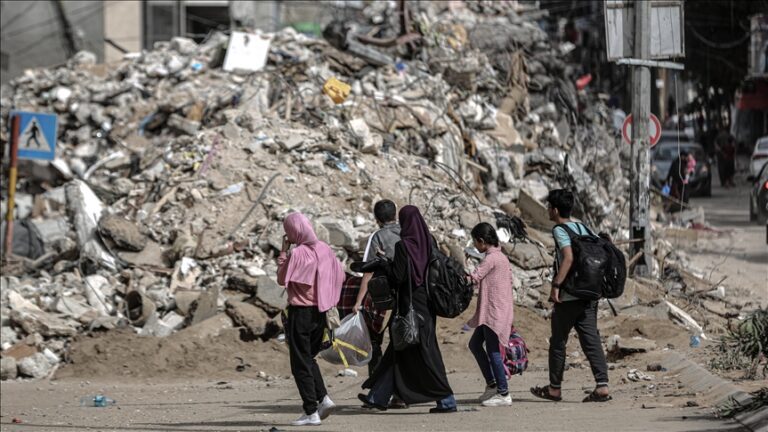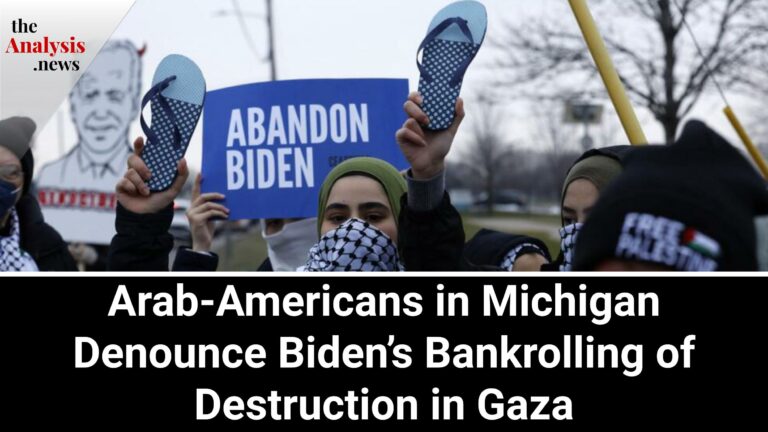According to recent Lebanese Health Ministry figures, Israel has killed a total of 4,047 people in Lebanon since October 2023, with 3,402 people killed in the past few months alone. Israeli Prime Minister Benjamin Netanyahu has declared Israel’s invasion of Lebanon a political victory for his coalition of right-wing fanatics. Omer Bartov, Israeli American genocide scholar and historian, characterizes Israel’s war crimes in Lebanon as a political exercise in saber-rattling for Bibi’s domestic audience, while the IDF prioritizes the elimination of Palestinians from northern Gaza and the starvation of Gaza’s besieged population. Will the Israel-Hezbollah ceasefire— now on shaky ground after numerous Israeli violations— actually hold?
Genocide Scholar: U.S. Policy Undermining Post-Holocaust International Law – Omer Bartov Pt. 2/2
Talia Baroncelli
Hi, I’m Talia Baroncelli, and you’re watching theAnalysis.news. Today, I’ll be joined by Israeli American historian and genocide scholar Omer Bartov. We’ll be speaking about the reaction to the ICC arrest warrants as well as the ceasefire deal that was just signed between Israel and Hezbollah.
If you’d like to support the work that we do, you can go to our website, theAnalysis.news. If you’re in a position to donate, please hit the donate button at the top right corner of the screen. Make sure you’re on our mailing list; that way, all of our content can get sent straight to your inbox. Feel free to like and subscribe to the show on YouTube as well as on podcast streaming services such as Apple or Spotify. See you in a bit with Omer Bartov.
I’m very happy to be joined by Professor Omer Bartov. He is a Samuel Pisar Professor of Holocaust and Genocide Studies at Brown University in the United States. He has written several books, including, Hitler’s Army, Germany’s War and the Holocaust: Disputed Histories, as well as a book published in the summer of 2023 called Genocide, the Holocaust and Israel-Palestine: First-Person History in Times of Crisis. Thank you very much for making time for us, Omer. It’s great to have you.
Omer Bartov
Thanks for having me.
Talia Baroncelli
Hezbollah and Israel just signed a ceasefire agreement which brings an end to 13 months of hostilities, at least on paper, and gives a 60-day period for both Hezbollah and Israel to withdraw from the area which is south of the Litani River and north of the Israeli-Lebanon border. Are you surprised that this agreement was reached, and what is your understanding of the reaction to this agreement in the Israeli media?
Omer Bartov
No, I’m not surprised about the deal. I actually expected it. I think nobody wanted this war to continue. Hezbollah was very severely damaged by Israeli attacks even before the war itself began. The Lebanese government, obviously, and the Lebanese population, non-Shiite as well, were not in favor of the war and were afraid that this would degenerate into a civil war, and there was a possibility of that. Iran, I don’t think, wanted this war to continue. Iran is hoping to preserve Hezbollah and not to have it entirely destroyed because it needs it for its own purposes to be on the Israeli border.
For Israel, this was a major problem because there was huge pressure in Israel from people who were not necessarily supporters of Netanyahu to do something about Hezbollah. The entire north of Israel, tens of thousands of people were displaced, and large numbers of settlements, houses, kibbutz, moshav, and towns were damaged, and large numbers of houses were destroyed. There was pressure on the government to, first of all, go into an operation.
I think that as far as the Israeli government is concerned, its main focus is not Lebanon; it’s not Hezbollah. It was a distraction. Its main focus is Gaza. For a long time, the Israeli government didn’t want to attack Hezbollah beyond this kind of constant exchange of fire because he wanted to focus on Gaza. It was the growing pressure on the government to do something about it from the population in the north that made it change the focus.
You can’t really fight two full-scale wars at the same time. It diverted many of the forces that were in Gaza, considering that much of Hamas had been destroyed anyway, to Lebanon. He wanted to make sure that, at least for a while, that issue would calm down so that it could refocus in Gaza. The focus of Israeli policy is not Lebanon; it’s Gaza and the West Bank; that’s where the interests of this government lie. I don’t think anybody wanted this to continue. Whether the ceasefire will last, that’s a whole other question.
Talia Baroncelli
Yeah, it’s a whole other question. My impression was that the Israeli military was actually trying to create a buffer zone in the south of Lebanon because there were attacks or strikes on UN peacekeepers who were stationed there, some of them who belonged to UNIFIL. The presence of them there is to enforce the agreement, the UN Security Council agreement, which was agreed to in 2006 after the war back then between Israel and Hezbollah. There’s a peacekeeping force there, as well as Lebanese soldiers who are stationed. Now the Lebanese troop presence has increased in the south. Do you not think that they were trying to create a buffer zone, or was this all smoke and mirrors to distract, as you say, away from Gaza?
Omer Bartov
Yeah, I don’t think they can create a buffer zone simply because there are scores of villages that are right on the border. They’re meters away from Israeli settlements. They can watch each other across the border. They’re very close to each other. To create a buffer zone, what the Israeli army did was destroy large numbers of villages, blow them up, but the population wants to come back there and rebuild them. I don’t think, realistically, that Israel could simply empty that area of its population.
What the IDF did, it went into the first line of villages, destroyed many of them, especially those villages that were overlooking directly onto Israeli settlements, and then they went into the second line of villages, which are a bit further on and a number of forces reached all the way to the Litani River. The agreement is based on the original agreement, but it’s supposed to be more effective. Whether it is or not, we don’t know. Hypothetically, it would mean that not only UNIFIL but the Lebanese army will control that area and that Hezbollah will not reach down below the Litani River.
The Lebanese army is a complicated organization; it’s weaker than Hezbollah, although Hezbollah now has been greatly weakened, and it’s made up of all members of Lebanese society. Lebanese society is made up of different groups and different religions, and they are not necessarily friendly to each other. It’s hard to see that army as being effective in controlling that area, especially if Hezbollah becomes stronger again. There’s certainly an interest there and in Iran to refit it.
UNIFIL was ineffective. What happened after the original agreement was that despite the clauses of that agreement, Hezbollah basically took over that whole area and was sitting in possessions well armed, right on the Israeli border. That’s what the population, the Jewish population of northern Israel would not want to see happening again. It is likely, in the long run, to repeat itself.
Ultimately there’s no solution to this without there being a political solution. The political solution would have to be not simply with Lebanon, Hezbollah, and Iran but with the Palestinians. But that’s exactly what Israel is unwilling to do.
As I say, I think it’s temporary; it may last a few years, but in the long run, there’s no real solution. We also don’t know what the future of Lebanon is. Lebanon is in a very fraught situation. Its politics is unstable, its economy went down the tubes. This is basically a band-aid for now.
Talia Baroncelli
What would you say was the ultimate goal of the Israeli military operation in Lebanon? Was it to inflict as much death and destruction as possible or to signal to the inhabitants of northern Israel that the government was trying to protect them from Hezbollah rockets?
Omer Bartov
Yeah, I would say both. The way to ensure settlers that they could come back, and many of them have said in recent days that they’re still not coming back. The way to do that was to inflict enough damage on Hezbollah that people would believe that once they moved back into their homes, they were not going to be hit by anti-tank missiles or rockets. The taste is in the pudding. We’ll see.
People are very wary of going back. I have to say it’s the same thing. The damage caused in Lebanon has been huge. Scores of villages flattened. Over a million people became refugees. Well over 2,000 people were killed.
This has been an operation, as I say, this was not part of what Israel wanted to do. Hezbollah, after October 7, under the late [Hassan] Nasrallah, swore that it would support Hamas by attacking Israel. Possibly, the main accomplishment of that from the point of view of Israel is that that link has been broken, that now Hamas is really isolated. It is not. It won’t get support in the immediate future from Hezbollah, which is just not in a position to do so, which makes it easier for Israel to concentrate on Gaza.
Maybe, in the long run, north Israel will revive. It was a very successful area for tourism. The economy was doing well there. Rebuilding it will take a long time, but also rebuilding the confidence of the population there in the government will take a long time.
The goal was, really, it was pressure from the population in the north, and that pressure was created because Hezbollah decided to support Hamas. That was the sort of course of events.
Talia Baroncelli
Okay, and now you see this as a victory for Netanyahu. What was the cost in terms of how many actual soldiers died on the Israeli side? Has that been spoken about much? Or is that being covered up or not talked about in Israel?
Omer Bartov
The cost in Israeli lives in soldiers is being talked about. Just a few days ago, it reached 800, which is a high number in Israeli terms. That number includes the more or less 300 who were killed on October 7 with the original Hamas attack, but it’s still a high number. The number of soldiers killed in the operation in Lebanon was, I think, generally lower than was expected.
Israel mourns and celebrates each soldier who is killed, but overall, the numbers were not as high as one expected. There was an expectation that this would be a much more difficult operation because of the terrain there and the training of Hezbollah, which also fought in Syria and had battle experience. By and large, it appeared that much of Hezbollah just retreated from those areas rather than fighting on the ground. It’s not seen, by and large, as a too-costly operation. It is seen as a victory for Netanyahu specifically, which will probably play into his ratings.
Talia Baroncelli
Given that you’re a genocide scholar, how would you assess the attacks on Lebanon? As you mentioned yourself, the operation was targeting many civilians. Even when the Israeli army said that they were targeting Hezbollah infrastructure, when they took out Nasrallah, for example, they still used U.S.-provided bunker-busting bombs, I think a huge number of them. They took out four or five different apartment blocks or civilian apartments along with killing Nasrallah.
Clearly, this had a huge impact on the civilian population. As you also mentioned, towns were taken out or bulldozed over, just completely bombarded. It does seem like there might be some form of genocidal intent there. What would you say to that?
Omer Bartov
You know, I don’t think that the term genocide would apply here in this case, unlike Gaza. I think that you could apply war crimes in terms of using disproportionate force in relation to the goal that you want to accomplish. Again, if you drop 81 or 2-ton bombs on a particular building because you want to get Nasrallah, which is what the Israelis did, and you’re killing several hundred civilians in the process, arguably, this is a war crime because it’s a disproportionate use of munitions.
To apply genocide to this, you would have to say that the goal of Israel both declared and implemented, that there’s an intention to destroy a particular group as such. I don’t think that Israel has made those intentions or articulated such intentions. I don’t think there is such an intention. That is, I don’t think that Israel has an intention of, say, destroying the Shiite population of Lebanon as such. I think it does see itself as engaged in fighting Hezbollah, as being a proxy of Iran. And that’s, I think the way military and political leaders in Israel think about it. If Hezbollah were to disappear, if there were different political leadership in Lebanon, and if the main army of Lebanon were not this organization, but rather the Lebanese army, Israel would be quite pleased about that.
Israel has a complicated relationship with Lebanon. For many years, there was no conflict at all between Israel and Lebanon, and the border was quite open.
Talia Baroncelli
Can you specify when that was? Sorry to interrupt.
Omer Bartov
When? All the way to the ’70s. In the mid-’70s, you have a Syrian incursion into Syria, and you have an Israeli incursion into Syria. There is the Litani Operation; there are a number of incursions. Finally, in 1982, in the so-called Peace for Galilee Operation, which is an attempt by Israel to replace, not only to kick out the Palestinians who were then very strong in Lebanon, having been pushed out of Jordan and having established a strong base in Lebanon, the attempt by Israel in ’82, again undeclared initially but then obviously the actual attempt was to replace the regime itself in Lebanon and to install a Maronite Christian as president of the state. It was about regime change. It failed. Israel got stuck in Lebanon then for 16 years. That is the time during which Hezbollah comes on the scene and eventually becomes the most powerful military force in Lebanon, far outmatching the Lebanese army and becomes a major arbiter in Lebanese politics, which now becomes a bit more questionable because of the losses they incurred both in killing their leadership and generally the military, if not defeat, then certainly great weakening militarily.
Israel has a complicated relationship with that state, which is itself a very complicated invention created by the former French authorities there. The Palestinians are a completely different issue.
For the Netanyahu regime specifically and for Israel generally, the main issue is the Palestinians. Hezbollah is important and was important really because it was seen, and I think largely correctly, as acting as a proxy for Iran, as its kind of extension of Iranian influence to areas that it’s not connected to territorially. It’s a different conflict.
There are extremists in Israel, settlers who were talking about settling southern Lebanon and including that in their vision of greater Israel. I don’t think that has much purchase in Israeli public opinion, even among right-wing politicians. By and large, it was a distraction from what Israel wanted to do and still wants to do in Gaza.
Talia Baroncelli
At the time when Israel launched the operations and invasion of Lebanon, it was at a time when Netanyahu’s popularity was quite low. As you’ve mentioned yourself, it was a political distraction.
Why don’t we turn to Gaza now? We recently saw the UN release a Special Commission report saying that crimes committed in Gaza by the Israeli military do have genocidal characteristics. Of course, this is already affirming what many other human rights organizations have been saying. How would you assess the nature of the ongoing military operations in Gaza at the moment?
Omer Bartov
Well, I would say that, in fact, in Gaza right now, there are no real military operations. It’s a facade. Israel is talking about fighting Hamas, but even Israeli army sources are saying we don’t have much action against Hamas because Hamas, as an organized military organization, has largely been dismantled. There are separate units, guerrilla units operating here and there, and they can cause the death of Israeli troops on the ground. There are no concerted military operations by Hamas. It’s not clear that it has a central command anymore. It will keep creating more and more guerrilla units. It will keep causing death and casualties to Israeli troops. But by and large, that’s not what Israel is doing there.
It was conducting, for months, in fact, from the beginning, as it turned out, its goal was not its declared goal. The declared goal was to destroy Hamas and to release the hostages. This is what Israeli political and military leaders said. It has not released the hostages, apart from those who were released through an exchange during a ceasefire. It has largely dismantled Hamas as an organized military organization, but it has not dismantled it as a political organization that is still active in Gaza and outside of Gaza. It turns out that its goal was in conformity with statements that were being made by Israeli political and military leaders right at the beginning, in early October, after October 7, which at the time could have been seen and were seen by many more statements being made in the heat of the moment following the horrific massacre by Hamas. If people come into a country and massacre hundreds of civilians, then you are likely to come up with very heated statements about them. It turns out that these statements were not simply made in the heat of the moment but had actually outlined something that, looking back, was a concerted plan to make Gaza as such uninhabitable for its Palestinian population. The IDF has been engaged in doing that from the very beginning.
In the course of doing that, it did destroy/kill large numbers of Hamas militants. Whether the number is as high as they claim, that’s probably exaggerated, but that doesn’t really matter. It killed large numbers of civilians. We are talking now about a total of about 44,000, of whom about 60% are civilians, mostly women and children, more than half of them children, wounding over 100,000, with thousands more buried under the debris. Large numbers of people have died, so to speak, indirectly from the war because they cannot get any hospital treatment if they have a chronic disease, if they have cancer or whatever, that they cannot receive that, and have died subsequently. Vast numbers of people who are living under terrible humanitarian conditions, which will have long-term effects, certainly on children for the rest of their lives. But what has turned out to be, it’s not only killing large numbers of people in the course of the fighting, as well as targeting, as the ICC has noted, directly, civilians. So not only indiscriminate killing, targeted killing, but also systematic destruction of everything that makes for a population’s, for a group’s existence as a group: cultural, educational, medical facilities, hospitals, universities, schools, mosques, museums, places of collective identity have all been systematically destroyed, including water plants as well.
It appeared already by May, June of this year, May/June 2024, as a systematic attempt to make Gaza uninhabitable, removing populations, most of the population from its areas of habitation and then destroying them, including the infrastructure. As of October this year, last month, early October, the IDF has now engaged in a clear operation to entirely empty the northern third of the Gaza Strip and to make it then an area that could be settled by Jewish settlers. That appears to be phase one of something that could then proceed further south, cutting Gaza into zones that would be gradually emptied of the population.
Right now, what the IDF is engaged in is in this kind of operation. It has no military purpose anymore. It can control what it’s controlling with the troops that it has underground now. It has spoken of having to remain there through ’25, so at least until 2026. It’s clear that what it is doing is a genocide of that population in the sense of eliminating that part of the Palestinian population as a group and bringing it to a situation where it would either die, be entirely debilitated, or have to leave. There would be pressure on other countries, on Egypt, on other countries to accept those people because they would be simply dying.
Talia Baroncelli
What you’re referring to is consistent with what’s been called the General’s Plan, or Giora Eiland’s plan, to eliminate, literally either completely kill or push out Palestinians from the north of Gaza. This also relates to something that Bezalel Smotrich, the far-right finance minister, has said recently, which hasn’t gotten that much attention but is completely genocidal and horrific. He said that it would be moral and justifiable to get rid of half of the Palestinian population in order to then resettle Gaza. We’re talking about at least a million people. What is your reaction to what Smotrich is saying, and why hasn’t he been sanctioned?
Omer Bartov
Well, Smotrich is not being sanctioned because he’s a member of the government. Netanyahu has to keep Smotrich and [Itamar] Ben-Gvir in his cabinet if he wants to remain prime minister, which is his main goal.
If Netanyahu stops being prime minister, if his coalition falls, first of all, he may have to go to jail because of his trial on corruption. But also it is likely that there would finally be a State Commission of Inquiry that would inquire into the fiasco of October 7, of which the most guilty person is Netanyahu himself. He has no interest in that happening. This, by the way, has implications, of course, for now, his indictment and the arrest warrant taken out against him, because had Israel established a Commission of Inquiry, Independent Commission of Inquiry, the ICC might not have been able to launch its own investigation because Israel could say, “Well, we are looking into it ourselves.” But Israel can’t do it because the prime minister will not allow it because he would be found guilty.
The plan that was put out by Giora Eiland, this retired general who was supposed to be this great strategist, was being aired on the Israeli media for months before that operation. He was selling it to the public. When it started, although the IDF said, “No, no, no, that’s something else,” it was clear that this is exactly what was happening. The interesting thing here is that Smotrich is speaking in ideological terms. Everybody knows he’s a very extreme settler, and he thinks that Gaza should be settled, and he and Ben-Gvir think that the population has to be encouraged to leave, to go elsewhere. So they’re ideological.
Eiland was saying, “No, no, no, I’m not talking at all about settlements. That’s not the thing. I’m simply speaking about a military operation,” which he claimed was also legal, which obviously isn’t. What you see is very typical of the way Israeli politics works. You have people who are ideologues, and there would be part of the public who would say, “That’s insane. They’re messianic. They are not rational politicians.” Then you have people who are security-minded people, and they’re speaking in very cold military terms. The result is exactly the same, but you thereby win over a much larger part of the population and say, “Well, we just have to do it. That’s part of a military operation. This general, he knows this stuff, and we should just listen to him, and then we’ll see what happens.” He says, “We won’t necessarily prevent them from coming back,” although the IDF has actually told people it’s evicting from there, there’s no coming back. The Netzarim Corridor is now five miles wide. Basically, the corridors are expanding so as to become the entire territory that is free of any Palestinians and also free of any previous housing that existed there so as to prepare them for a new layer of army camps and then settler housing.
Talia Baroncelli
You’ve just been watching part one of my discussion with historian Omer Bartov. If you enjoyed this content, you can look out for part two. See you next time.
Podcast: Play in new window | Download | Embed
Subscribe Apple Podcasts | Spotify | Android | iHeartRadio | Blubrry | TuneIn | Deezer | RSS
Never miss another story
Subscribe to theAnalysis.news – Newsletter
Omer Bartov is an Israeli-American historian. He is the Samuel Pisar Professor of Holocaust and Genocide Studies at Brown University, where he has taught since 2000. Bartov is a historian of the Holocaust and is considered one of the world’s leading authorities on genocide.

